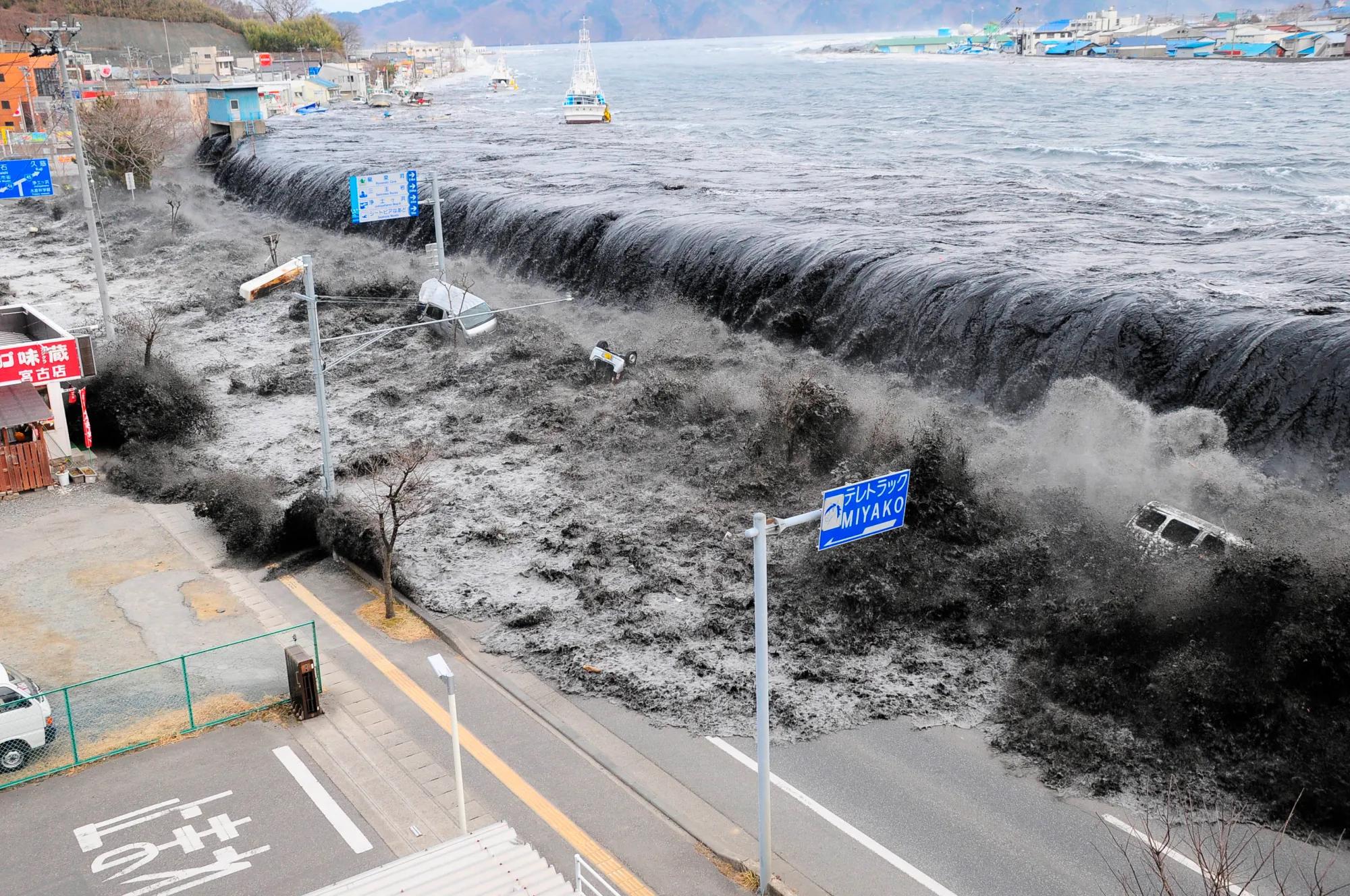Our Terms & Conditions | Our Privacy Policy
UN raises alarm over Japanese nuclear wastewater discharge into the Pacific Ocean
The United Nations Human Rights Council has officially expressed its concerns to Japan over the release of nuclear-contaminated water from the Fukushima Daiichi Nuclear Power Plant into the Pacific Ocean.
In August 2023, Japan started discharging wastewater from about 1000 storage tanks containing contaminated water collected after the 2011 earthquake and tsunami, which led to the meltdown of its Fukushima nuclear plant.
The 2011 disaster resulted in 19,747 confirmed deaths and 2553 people still listed as missing. The Japanese government says indirect deaths related to the disaster have also been recognised, bringing the total to 20,000.
The UN’s action this week comes almost a year after the first discharge from Fukushima. It also follows a complaint made in August 2023 by Ocean Vision Legal, on behalf of the Pacific Network on Globalisation (PANG), which received support from more than 50 civil society organisations from the Pacific and around the world.
The complaint highlights the serious environmental and public health risks associated with Japan’s plan to discharge more than 1.3 million metric tonnes of radioactive wastewater into the ocean over the next 30 years. The operation started in 2023 and has already resulted in 12 releases.
In a statement, the UN warns that the releases could lead to major environmental and human rights issues, including threats to people’s rights to life, health, food, and access to clean drinking water.
The UN warns of the increased risk of radiation exposure, especially for children and vulnerable populations. It also raises concerns about inadequate radiation impact assessments and limited healthcare access.
The UN’s special rapporteurs have also noted the lack of transparency, limited public participation, and the absence of meaningful consultation, all of which are key to free and democratic societies.
“The UN Human Rights Council draws attention to allegations that Japan failed to properly assess the health impacts of the wastewater release in accordance with the best available scientific evidence,” the statement reads.

The 2011 disaster resulted in 19,747 confirmed deaths and 2553 people still listed as missing. Photo/brookings.edu
Professor Robert Richmond from the University of Hawaii and a former member of the Pacific Islands Forum Commissioned Expert Panel, states that Japan’s decision to release the treated, radioactively contaminated water is “disappointing”.
The UN Human Rights Council further emphasises the importance of adhering to long-standing international obligations and laws, such as the prohibition of transboundary environmental harm, the need to conduct environmental impact assessments, and applying the precautionary principle, including relevant provisions of the United Nations
Convention for the Law of the Sea (UNCLOS).
The UN Human Rights Council states that countries have the responsibility to ensure that activities within their jurisdiction do not cause environmental damage to other states or areas beyond their national boundaries.
“That is what Japan would be doing if it were to discharge the million tons of pollution into the Pacific Ocean,” Marcos Ornella, a UN Special Rapporteur, states.
“We remind Japan of its international obligations to prevent exposure to hazardous substances, to conduct environmental impact assessments of the risks that the discharge of water may have, to prevent transboundary
environmental harms, and to protect the marine environment.”

The Fukushima Daiichi Nuclear Plant in Japan. Photo/Ryohei Kataoka/Greenpeace
For island nations and coastal communities that have long endured the impacts of Ocean degradation, the UN reaffirms what Pacific people have asserted for generations: the Pacific is not a dumping ground.
It states that the destructive legacy of nuclear contamination from past nuclear testing continues to be strongly felt across the region, marked by severe health impacts that affect generations and the ongoing failure to properly clean up test sites, which still contaminate the islands and waterways which Pacific people depend on.
“As Pacific groups, we remain disappointed in the Japanese Government and TEPCO’s shameless disregard of the calls by numerous Pacific Leaders and civil society groups to hold off on any further release,” Joey Tau, Coordinator of the Pacific Network on Globalisation, says.
“Their ignorance constitutes a brazen threat to Pacific peoples’ livelihoods, safety, health and well-being, and the sovereignty of Pacific nations.
Dr Anna von Rebay, CEO and founder of Ocean Vision Legal, says, “This communication sends a clear message that ocean issues must be understood as human rights issues, requiring precautionary and informed action aligned with international environmental law to safeguard both people and the marine environment.
“Although not legally binding, this communication is a crucial milestone. It informs the interpretation of human rights and environmental law in response to contemporary threats, contributing to the development of customary international law and strengthening accountability for any actor harming the ocean.
“Ultimately, it paves the way towards a future where the ocean’s health is fully recognised as fundamental to human dignity, justice, and intergenerational equity.”
The Tokyo Electric Power Company (TEPCO) is a Japanese electric utility company that operates nuclear power plants, including the Fukushima Daiichi Nuclear Power Plant and the Fukushima Daini Nuclear Power Plant.
The Pacific Network on Globalisation, Ocean Vision Legal, and the supporting organisations strongly urge Japan to uphold human rights by halting further wastewater discharges and pursuing alternative solutions.
The Japanese foreign office has been approached for comment.
Images are for reference only.Images and contents gathered automatic from google or 3rd party sources.All rights on the images and contents are with their legal original owners.



Comments are closed.